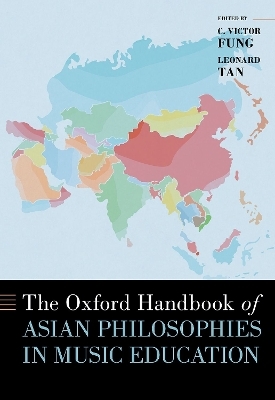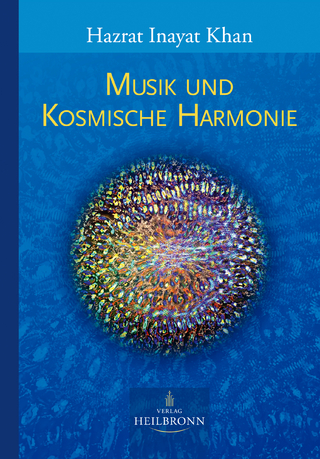
The Oxford Handbook of Asian Philosophies in Music Education
Oxford University Press Inc (Verlag)
978-0-19-062168-1 (ISBN)
The book is organized into five sections. Section I is based on Chinese philosophical traditions, which have the longest history and are some of the most influential across Asia and beyond. Chapters in Section II present a snapshot of Japanese and Korean views, beginning with the musical practices in the Joseon Period (1392-1910) that are still being practiced in South Korea today to Western influences in 19th century Japan. A collection of philosophical traditions from South and Southeast Asia are contained in Section III, ranging from the insights of King Bhumibol Adulyadej, King Rama IX of Thailand, an accomplished jazz musician, to the Balinese notion of taksu, a form of supreme energy and divine power crucial for compelling performances in the performing arts. We venture into the Islamic and the Middle Eastern world in Section IV, where the dance practices of the Hadhrami Arabs in the Malay Archipelago to traditional sharah music are contextualized within Islamic philosophy. This section also describes the philosophical ideas of the 12th-century Persian philosopher and founder of the Illuminationist (Ishraq) philosophy, Shihab al-Din al-Suhrawardi, arguing that his ideas have much to recommend music education, as this approach requires students to listen in deeper ways, absorb more abundantly, and move beyond arts education to encompass the education of the whole person. Section V concludes with a metaphorical view on a New Silk Road in music education in the 21st century, where ideas are traded for mutual benefit and the development multicultural philosophies of music education.
While there are numerous publications on the philosophy of music education rooted in the Western philosophical traditions of ancient Greece, the Asian philosophical voice is virtually silent outside of Asia, and this volume aims to begin the long process of redressing this imbalance. This volume will open readers to the richness of Asian philosophical sources and hopefully stimulate dialogues that could generate new insights and directions for further development, cross-pollination, and application of some of the world's earliest philosophical traditions.
C. Victor Fung is Professor of Music Education at the University of South Florida. He is author of A Way of Music Education (2018), co-author of Music for Life (2016) and Music, Senior Centers, and Quality of Life (2023), and co-editor of Meanings of Music Participation (2023), and he has written various book chapters and journal articles. He was a Fulbright Researcher in Japan and a board member for the College Music Society, Florida Music Education Association, and International Society for Music Education. Leonard Tan is Associate Professor of Music at the National Institute of Education, Nanyang Technological University, Singapore. He has authored more than 50 publications and serves/has served on the Editorial Boards of the Journal of Research in Music Education, Philosophy of Music Education Review, International Journal of Music Education, Music Educators' Journal, and Encyclopedia of Educational Philosophy and Theory.
List of Figures
List of Tables
List of Contributors
1. Introduction: Charting a New Silk Road for Music Education
C. Victor Fung and Leonard Tan
Section I: Chinese Philosophical Traditions
2. Philosophy of Music Education in Early China: Confucian Perspectives
Hailin Xiu (translated by C. Victor Fung)
3. Philosophy of Music Education in Modern and Contemporary China
Hailin Xiu (translated by C. Victor Fung)
4. Progress and Development of Philosophy of Music Education in China since the Twentieth Century
Yaohua Wang and Xiaoli Guo (translated by Hongmei Dou)
5. Qin: Musical Transmission of the Dao
Mingmei Yip
6. On Daoist Philosophies of Music: Laozi and Zhuangzi
Mengchen Lu and Leonard Tan
7. Music for Non-Music's Sake: The Utilitarian Values of Music in Education in Taiwan
Mei-Ling Lai and Jui-Ching Wang
Section II: Japanese and Korean Philosophical Traditions
8. Confucianism in Korean Traditional Music: Music of Joseon Period (1392-1910)
Yong Hee Kim
9. Originality from Cultural Boundary: Assimilation and Reconstruction of Music Education in Korea
So Jeong Park
10. The Concept of Soundscape as a Bridge between the East and the West
Tadahiko Imada
Section III: South and Southeast Asian Philosophical Traditions
11. Philosophical Insights from Phra Chao Yu Hua: His Majesty King Bhumibol Adulyadej of Thailand
Krit Niramittham
12. Taksu in Balinese Music
I Wayan Dibia
13. Memayu Hayuning Bawana: A Javanese Philosophy of Living with Implications for Music Education
Henry Susanto Pranoto
14. Sensory Imbibing, Indian Philosophy, and Vedic Metal: Implications for Music Education
Eugene Dairianathan
15. Respect for Knowledge and Guru in Contemporary Music Education
Seetha Lakshmi
Section IV: Islamic and The Middle Eastern Philosophical Traditions
16. Learning to Perform Music in the Hadhrami Arab Community
Larry Francis Hilarian
17. Nâ-Kojâ-Abâd: The Place of Iranian Music Education in Suhrawardi's Light-of-Lights
Nasim Niknafs
18. Historical, Philosophical, Educational Thought and the Music of the Turks
N. Oya Levendoglu (translated by Steven Jones)
Section V: A New Silk Road in Music Education
19. Boundary-crossing from a Perspective of "-ness": Toward Boundarylessness in Music Education Philosophy
C. Victor Fung and Danxu Ma
20. Trading Ideas on A New Silk Road: Toward Multicultural Philosophies of Music Education
Leonard Tan and C. Victor Fung
| Erscheinungsdatum | 19.07.2024 |
|---|---|
| Reihe/Serie | Oxford Handbooks |
| Verlagsort | New York |
| Sprache | englisch |
| Maße | 173 x 239 mm |
| Gewicht | 771 g |
| Themenwelt | Kunst / Musik / Theater ► Musik ► Musiktheorie / Musiklehre |
| Geisteswissenschaften ► Philosophie ► Geschichte der Philosophie | |
| Geisteswissenschaften ► Philosophie ► Östliche Philosophie | |
| Geisteswissenschaften ► Philosophie ► Philosophie der Neuzeit | |
| Sozialwissenschaften ► Pädagogik | |
| ISBN-10 | 0-19-062168-0 / 0190621680 |
| ISBN-13 | 978-0-19-062168-1 / 9780190621681 |
| Zustand | Neuware |
| Informationen gemäß Produktsicherheitsverordnung (GPSR) | |
| Haben Sie eine Frage zum Produkt? |
aus dem Bereich


